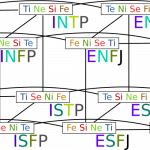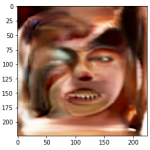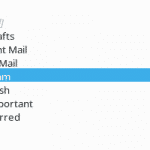Before starting, we want to lay-out some ground rules for this post, MBTI isn’t a scientific theory, it’s just a business indicator (Created by a writer not a psychologist), most of its tests aren’t accurate, however, the indicator is built around “Jungian cognitive functions” which is detailed in a very well established theory and book “Psychological Types” written by analytical psychology godfather and founder Carl Gustav Jung, analytical psychology is the field used in all current psychological assessments and indicators.
The cornerstone here in this post is cognitive functions, not MBTI, as we have a strong belief MBTI is not scientific, but Jung’s theory is. Carl Jung developed the theory of cognitive processes which is acknowledged by a lot of psychologists as an established theory, he defined only four psychological functions which can take introverted or extraverted attitudes, as well as a judging (rational) or perceiving (irrational) attitude determined by the primary function (judging if thinking or feeling, and perceiving if sensation or intuition). He used the terms dominant, auxiliary, and inferior, in which there is one dominant function, two auxiliary functions, and one inferior function (Source).
So throughout this article, we will always talk about the dominant cognitive function, which can be one of (Ne, Ni, Se, Si, Fe, Fi, Te, Ti). Keep in mind that those alone aren’t enough to take a decision, but can give huge step in analyzing what might be going on. We will also mention the types from the MBTI indicator not to give it any credibility but to make it more understandable in case you are coming from an MBTI background.
Extroverted Thinking (Te) Product Owner (Primary: ENTJ, ESTJ. Aux: INTJ, ISTJ)
Good:
- Super organized backlog: They include every single detail you can think of to the user story.
- Full alignment to the organization process
- Great speaker, grooming sessions will be organized.
Bad:
- Tendency to control: Sometimes there might be tries to take more active role in some stuff outside responsibility.
- User stories can become list of instructions instead of an amusing piece of writing.
- Not a great listener, more talking.
- Their high expectations might cause a complicated definition of done or definition of ready.
- Sometimes have hard time delegating.
- Have hard times dealing with emotions in general, their own or others, which might cause harsh judgements on the team.
- Their tendency to speak might cause longer than usual meetings.
Adjustments:
- Someone needs to always get them ONLY the correct amount of control and shouldn’t allow more (Scrum master might be able to do so or someone of higher rank)
Introverted Thinking (Ti) Product Owner (Primary: INTP, ISTP. Aux: ENTP, ESTP)
Good:
- Always think outside of the box
- Will come up with great original ideas.
- Won’t ever feel bad if you challenged their ideas, causing the ideas to be even better.
- Can easily understand technical sides and might even be a good software developer.
- Can easily detect problems and fix it
Bad:
- Might not follow important rules in the process
- Will suffer with routine tasks like cleaning up the backlog.
- Love debating, which might cause waste of time. And sometimes think their opinions are better.
Adjustments:
- Make sure you always get their chaos in order, to get all the benefits of flexible thinking without breaking your rules.
- Might need a helping hand with tasks that require organization, make sure you make it clear for them that there is an option for someone to take over some routine tasks.
Introverted Feeling (Fi) Product owner (Dominant: INFP, ISFP, Aux: ENFP, ESFP)
Good:
- Amusing user stories
- Can easily wear the customer shoes and understand deeply their needs.
- Have very high principles for self, yet might be soft on others.
Bad:
- Might be suspicious about estimates and getting the true efforts out of the team.
- Might not be able to decide a cause of problems (And act on) if it’s connected directly to a close member in the team.
- Might start throwing blames all over the place under pressure.
Adjustments:
- Always listen to an Fi inner thoughts and try to analyze it periodically, self-blaming and suspicions might drag them down.
Extroverted Feeling (Fe) Product owner (Dominant: ENFJ, ESFJ, Aux: ISFJ, INFJ)
Good:
- Have great ability to read others needs, making them connected deeply to customers and developers
- Can easily manage the backlog and make it really organized.
- Very encouraging and helpful to the team.
- Can easily do administrative tasks related to people.
- Stories will be very amusing, will describe customers feeling within the story a lot.
Bad:
- Might eliminate others ideas
- Can be overly cautious, causing sometimes the DoD to become overly complicated.
- Have hard time adapting to different opinions and abstract ideas.
- Can spend a lot of time choosing between two options.
Adjustments:
- Once you see an attack coming against them, make sure you jump in if they felt insecure.
- On choosing between options, lend them a hand deciding.
- If you see ideas elimination for no logical reason, try to point that out gently.
Extroverted Intuition (Ne) Product Owner (Primary: ENFP, ENTP. Aux: INFP, INTP)
Good:
- Very imaginative, can generate the best ideas and features, most of the features will bring a lot of great results.
- They tend to be very flexible, a trait to be loved by the team
Bad:
- They can AND will prematurely jump from one feature to the other without completing the first one, as the next one is more exciting and their excitement about the first feature has already vanished.
- They might take uncalculated risks, causing the roadmap to have huges changes
- Can break rules or allow others to break rules, so DoD might not be followed.
- They might cause the budget (Which they made being very imaginative) to run sooner than it should.
Adjustments:
- Get them help with organizational and administrative tasks, like backlog cleanup.
- Make sure either the PO or someone else catches any leftovers so you don’t end up with premature release of features, or jumping to a different epic before they should.
Introverted Intuition (Ni) Product owner (Dominant: INFJ, INTJ, Aux: ENFJ, ENTJ)
Good:
- Have the strongest guts around features, they can know if something will work without knowing how they know.
- Can very easily see the bigger picture and never lose, can also explain it easily emphasizing on some parts that everyone else can’t see.
- Can easily work on complicated systems, while having very special inner understanding of it.
- Will easily integrate a Nexus or portfolio management into a complex team.
- Can build connections and integrations between multiple features or problems in ways very hard to any other type.
Bad:
- Might not be able to explain his guts around features, making management against it.
- Their reliance on guts or unconsciousness isn’t easily scalable to other POs in a Nexus, can’t be easily converted to ideation/discovery structure process.
- User stories might miss the “Why” part.
- Details are their weakest point, user stories can miss a lot of important details, concentrating more on how something will interact with everything else without focusing on how this thing itself will work internally.
Adjustments:
- Need more room to ideate “crazy” ideas even if they can’t explain the benefits behind specific features. This doesn’t mean blindly doing so, but at least don’t shut the door immediately on some ideas that you might see as “crazy”
- Someone should help them filling all the gaps in details. Maybe an Te member of the team.
- Need continuous reminding that explaining stuff to others that seems so obvious to them is very important.
Extroverted Sensing (Se) Product Owner (Primary: ESFP, ESTP. Aux: ISFP, ISTP)
Good:
- Have great UI/UX taste, giving extra attention to visual details.
- Can stick to day-to-day tasks like backlog cleanup as long as it’s enjoyable.
Bad:
- Might lack imagination while trying to come up with ideas for complicated interconnected features.
- Might be seen as short-sighted as most of the concentration is on the present.
- Can ignore boring discussions around stuff like DoD.
- If the team has a UI/UX designer, the relation might not be clear if the responsibility boundary isn’t set correctly.
- Can come up with multiple screens designs almost everyday, making the team a little lost about the final needed designs.
Adjustments:
- Can get help from an Ne to come up with more future-proof ideas.
- Should make sure communication is as efficient as possible related to changes, as they do continuous changes to backlog and designs.
Introverted Sensing (Si) Product owner (Dominant: ISFJ, ISTJ, Aux: ESFJ, ESTJ)
Good:
- Great QA capabilities, can help covering regression testing, as the memory for past details is very high, can catch bugs very easily.
- Can be very helpful in the retrospectives, can recall great points to make the team better.
- Have good UI/UX taste, can mix and match multiple old designs to come up with the best of all worlds.
- Never does the same mistake twice.
- Can give great advice to the team.
- Can easily read people.
- Can stick to a specific task until it’s totally done.
Bad:
- Can keep making the DoD more and more complicated to avoid past mistakes.
- Can be persistently blaming person.
- Might not be able to explain themselves.
- Don’t play well with different opinions and new point of views, specially if those are against his beliefs.
- Have problem abandoning a feature if it’s not needed anymore.
- Can stick too hard to their own views and opinions, under pressure, this can cause a bunch of bad (Maybe even selfish) decisions
Adjustments:
- If you want to introduce a change, or to explain new point of views, make sure to avoid giving them direct blames, try your best to give them relatable stories about similar situations in the past that can relate to the current situation.
- Make sure to explain that a different point of view is just a try to make things better, not to question his decisions.
Conclusion
Nobody is perfect, any personality type have good and bad traits, this post walks you through the good and bad about each product owner psychological type, your job now is to make sure you understand both and do any adjustments needed in your Nexus or Scrum to make sure you can overcome the bad.
Let us know in the comments your experience with specific product owner types, the good, the bad and how you managed to make it work in the team’s favor.














Great article, thanks a lot! Would be amazing to see a similar list for Scrum/Agile Masters. 🙂